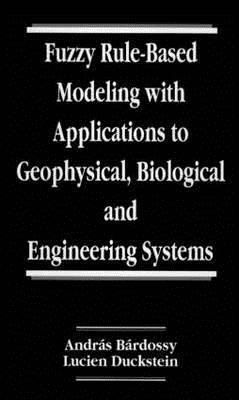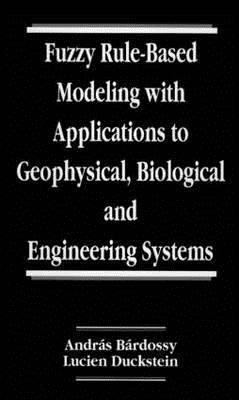
- Retrait gratuit dans votre magasin Club
- 7.000.000 titres dans notre catalogue
- Payer en toute sécurité
- Toujours un magasin près de chez vous
- Retrait gratuit dans votre magasin Club
- 7.000.0000 titres dans notre catalogue
- Payer en toute sécurité
- Toujours un magasin près de chez vous
Fuzzy Rule-Based Modeling with Applications to Geophysical, Biological, and Engineering Systems
Andras - Bardossy, Lucien DucksteinDescription
This book presents in a systematic and comprehensive manner the modeling of uncertainty, vagueness, or imprecision, alias "fuzziness," in just about any field of science and engineering. It delivers a usable methodology for modeling in the absence of real-time feedback.
The book includes a short introduction to fuzzy logic containing basic definitions of fuzzy set theory and fuzzy rule systems. It describes methods for the assessment of rule systems, systems with discrete response sets, for modeling time series, for exact physical systems, examines verification and redundancy issues, and investigates rule response functions.
Definitions and propositions, some of which have not been published elsewhere, are provided; numerous examples as well as references to more elaborate case studies are also given. Fuzzy rule-based modeling has the potential to revolutionize fields such as hydrology because it can handle uncertainty in modeling problems too complex to be approached by a stochastic analysis. There is also excellent potential for handling large-scale systems such as regionalization or highly non-linear problems such as unsaturated groundwater pollution.
Spécifications
Parties prenantes
- Auteur(s) :
- Editeur:
Contenu
- Nombre de pages :
- 256
- Langue:
- Anglais
- Collection :
- Tome:
- n° 8
Caractéristiques
- EAN:
- 9780849378331
- Date de parution :
- 28-04-95
- Format:
- Livre relié
- Format numérique:
- Genaaid
- Dimensions :
- 156 mm x 233 mm
- Poids :
- 565 g

Les avis
Nous publions uniquement les avis qui respectent les conditions requises. Consultez nos conditions pour les avis.






